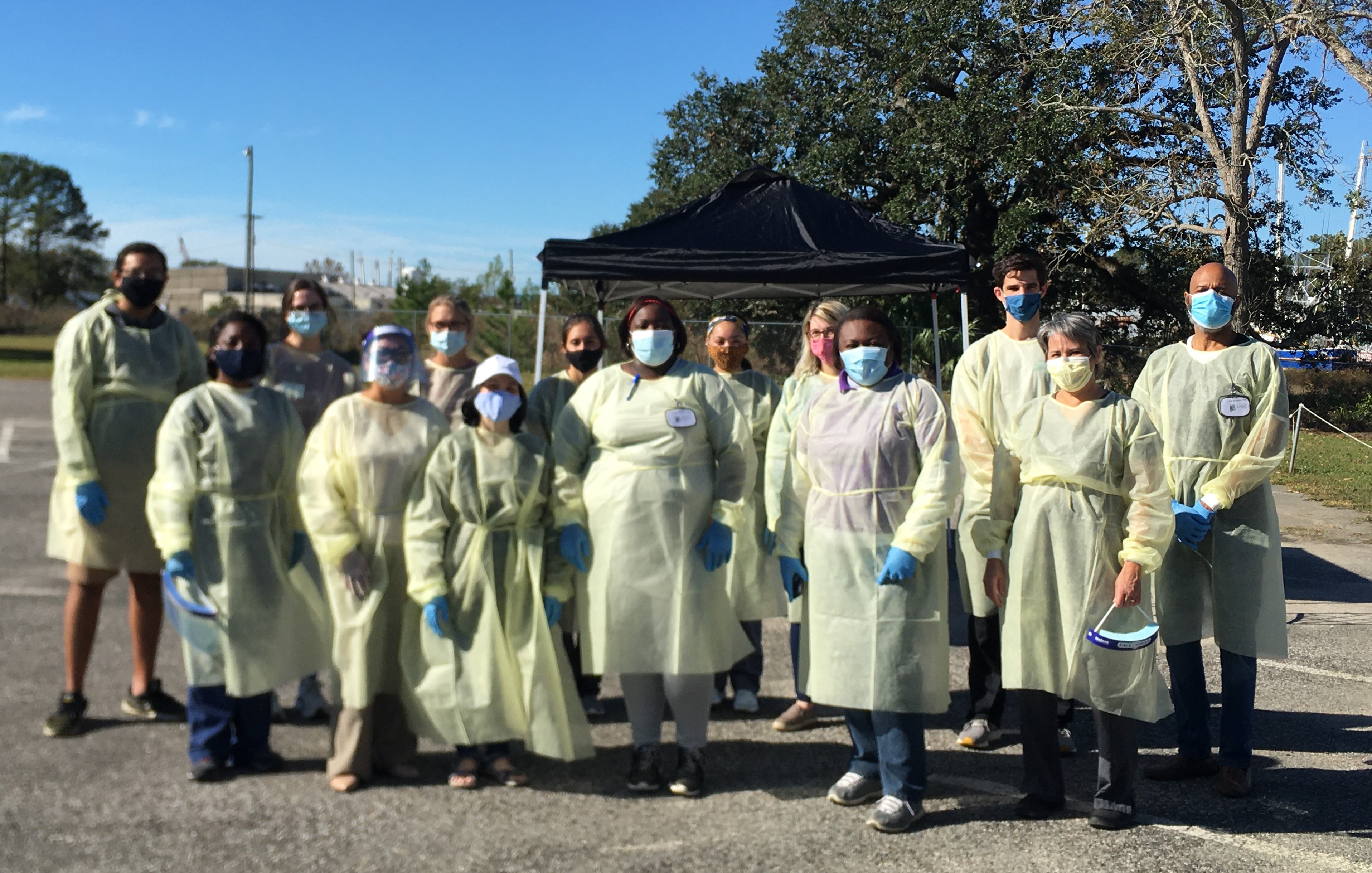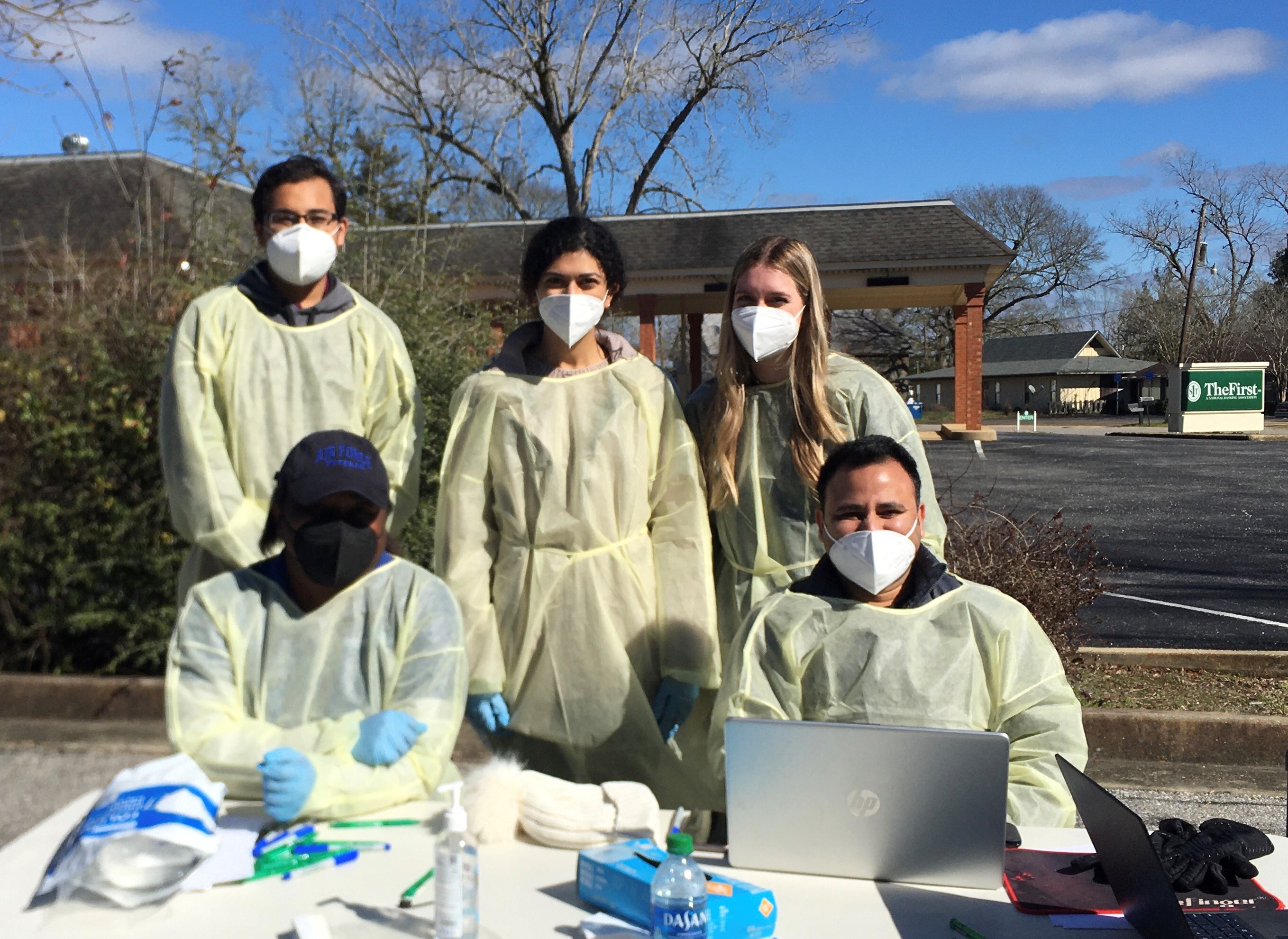
When a hospital or health care center experiences worker shortages, the impact can be far reaching. Shortages impact patient care, put strain on current employees and affect a hospital’s ability to make positive changes as it scrambles to complete daily tasks. The COVID-19 pandemic, including the most recent surge, has put even more pressure on health care systems and exacerbated many situations where shortages were already an issue.
According to a recent Forbes report, more than 25% of Alabama hospitals are experiencing workforce shortages during the recent COVID surge. Other states are in a similar or worse situation; in New Mexico and Vermont, for example, more than 50% of hospitals are experiencing critical shortages. Such shortages have shown gaps and opportunities to bolster our state’s health care systems.
Organizations like the Alabama Statewide Area Health Education Centers (AHEC) are already answering the call, and have been for several years.
AHEC is working to funnel more capable and specialized workers into health care professions both in the immediate future and in the years to come, particularly focusing on medical professionals from rural or underserved areas of Alabama. At HRSA’s direction four years ago, the AHEC Scholars program began. The program supports AHEC’s mission and seeks to equip students pursuing medical discipline degrees with innovative curriculum and clinical training opportunities. The program now supports over 160 students and hopes to recruit dozens more scholars in the coming year.

AHEC Scholars represent all areas of Alabama and serve their communities through educational events and by providing medical care. Scholars must be pursuing a two year or higher medical degree program, including physician assistant, physical therapy, nursing, or other allied health programs. The program puts emphasis on the interprofessional nature of medicine and trains its scholars on how best to work on an interprofessional team.
Scholars commit to two years in the program which includes 40 hours of didactic training and 40 hours of clinical experiences. Scholars are encouraged to present ideas for clinical exposures, can use their time volunteering with AHEC toward their degree requirements and are offered flexibility when completing program requirements to ensure the program accomplishes its goals of building up a stronger interprofessional medical workforce. Service learning is also a major component of the program, emphasizing the importance of knowing and contributing to one’s community.
“We try to give as much flexibility for the scholars to complete the program during their time in school,” said Lamont Dupree, associate director of North Alabama AHEC. “The idea is to have them in an interprofessional setting as much as possible to prepare them for their careers.”
During the COVID-19 pandemic, it became challenging for students to get their clinical hours due to safety protocols and closures.
“With the onset of COVID a lot of schools were going virtual, and places for students to get hours were closing,” noted Joe Crozier, executive director of North Alabama AHEC. “At the same time, we were setting up COVID testing sites in our rural areas and decided to offer the opportunity to our scholars in North Alabama.”
AHEC leaders across the state decided to bring students into their COVID-19 outreach efforts and bolster the community events with invested volunteers.
The North Alabama AHEC Scholars group has participated in 13 COVID-19-related activities and events to date, and the Southern Alabama AHEC Scholars have assisted with 15 events in their community so far. Combined, regional AHECs and the statewide office have held hundreds of COVID-19 testing and vaccination events for Alabamians.
“During several testing events we were shorthanded,” said Md Ikbal Parveg, Southern Alabama AHEC director of programs. “Our scholars’ initiative, drive and motivation helped us complete thousands of COVID tests for rural community members who may otherwise not have been tested.”
Parveg noted that these outreach events prepared the scholars for future public health emergencies and expanded their understanding of community access.
AHEC Scholars assist with these events, still ongoing amid the omicron surge, in meaningful ways and are able to connect with their communities through compassionate medical care. According to Dupree, scholars with proper training can administer tests and vaccines or help with registration and patient education.
Kaitlyn O’Hara, a graduate of the AHEC Scholars program and a current nurse, participated in several COVID-19 outreach events with the North Alabama AHEC office.
“I loved being able to help with these [COVID-19 events] because they really pull the classroom knowledge into reality,” she said. “My favorite experiences were at some of the rural areas we have done testing in. I loved seeing how grateful people were to have easier access to things they’d typically have to drive far distances for—these programs have increased my passion for practicing in underserved communities.”
O’Hara also commented on the importance of the AHEC Scholars program for expanding her medical curriculum beyond the scope of nursing.
“The AHEC Scholars program has been a perfect supplement to my nursing education. I was able to experience community health care in a way that otherwise would not have been possible and explore different perspectives from students of other disciplines.”
The program emphasizes the value of understanding and collaborating with all members of an interprofessional medical team. O’Hara noted that the program helped her to become more compassionate and better prepared to work as part of a health care team.
Through AHEC Scholars, more qualified and compassionate health care workers are entering Alabama’s hospitals at a time of great need. To learn more about the program or to apply, please visit the statewide office’s website.
Alabama Statewide AHEC is housed within the Department of Family and Community Medicine at the University of Alabama at Birmingham's campus. Our department is proud to support and work with all AHEC offices across the state.